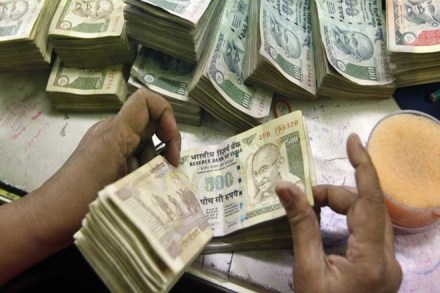In a move that will benefit about 25 crore customers, the State Bank of India (SBI) on Tuesday announced reduction in its AMB (Average Monthly Balance) charges by up to 75%, effective from April 1, 2018. For instance, while the charges for non-maintenance of minimum balance for the metro and urban centre customers have been reduced from a maximum of Rs 50 per month (plus GST) to Rs 15 pm (plus GST), charges for the semi-urban and rural centre customers have been reduced from Rs 40 pm (plus GST) to Rs 12 and Rs 10 pm (plus GST), respectively.
Currently SBI has close to 41 crore savings bank (SB) accounts and out of these, around 16 crore bank accounts under the Basic Savings Bank Account (BSBD) / Pradhan Mantri Jan-Dhan Yojana (PMJDY) and some other categories are exempt from maintaining any monthly account balance. Besides, students up to 21 years of age are also not required to maintain any balance. Further, the bank says, if any account holder doesn’t want to maintain the average monthly balance, then he can also get the regular savings bank account converted to the BSBD account free of charge.
It may be noted that in view of growing consumer complaints against increase in banking charges, SBI had in September last year also revised its service charges for non-maintenance of minimum balance in bank accounts and had also lowered the AMB requirement for its customers in metro cities to Rs 3,000 from Rs 5,000 earlier, effective October 2017.
Here’s what India’s leading banks, ranging from SBI to HDFC Bank, are charging for non-maintenance of minimum average balance (MAB):
| Savings Bank Account Charges (For Metro cities) | ||||
| BANK | Account Detail | MAB/QAB (Rs) | Penalty on non maintenance of MAB/AQB | ATM Withdrawal Charge (Beyond allowed limit)- From other Bank’s ATM |
| SBI | SBI Savings Bank Account | 3000 (MAB) | Up to Rs 15 per month** | For Financial Transaction: Up to Rs 17 For Non- Financial Transaction: Up to Rs 6 |
| PNB | Savings Account (General) | 2000 (QAB) | Up to Rs 250 | For Financial Transaction: Up to Rs 20 For Non- Financial Transaction: Up to Rs 9 |
| IDBI | Super Savings Account | 5000 (MAB) | 4% per month on the differential amount of MAB & Actual Avg Bal maintained (Min Rs 100) | For Financial Transaction: Up to Rs 20 For Non- Financial Transaction: Up to Rs 8 |
| ICICI Bank | Regular Savings Account | 10000 (MAB) | Rs. 100 + 5% of the shortfall in required MAB | For Financial Transaction: Up to Rs 20 For Non- Financial Transaction: Up to Rs 8.5 |
| HDFC Bank | Regualr Savings Account | 10000 (MAB) | Up to Rs 600 | For Financial Transaction: Up to Rs 20 For Non- Financial Transaction: Up to Rs 8.5 |
| Corporation Bank | CorpBank Savings Account | 500 (QAB) | Up to Rs 100 per quarter | For Financial Transaction: Up to Rs 20 For Non- Financial Transaction: Up to Rs 10 |
| Canara Bank | Savings Bank Account | 1000 (MAB) | Up to Rs 40/ Month | For Financial Transaction: Up to Rs 20 For Non- Financial Transaction: Up to Rs 10 |
| *MAB: Monthly Avergae Balance QAB: Quarterly Average Balance Penalty and charges may include applicable GST as per prescribed rate **From 1st April 2018 onwards Source: Bankbazaar | ||||
Although many bank have faced wide criticism in recent months for their hefty charges for non-maintenance of minimum account balance, but experts say that after all, banking is a service and providing services to customers costs money, even in case of digital banking. Thankfully, most banks do not charge even service fees for holding an account. However, maintaining a minimum balance is integral to these banks, who are also trying to lend on the other side.
“Paperless banking has over the years drastically reduced the cost for banks, but they still need each account holder to keep a stipulated sum for providing them services, ranging from cash withdrawals, fund transfers, bill payments and even regular account inspections. Plus, with the advancement in digital banking, banks incur a huge cost on software upgradation and maintenance of its CBS Software (Core Banking Solution) and more recently, cyber security software, to protect customers from any threats,” says Adhil Shetty, CEO, Bankbazaar.com.
Thus, banks, like many other businesses, do need to charge for the services they provide if they are to stay profitable and meet investor expectations of return on capital employed. Customers should protest only when banks are overcharging, which is seen sometimes.
